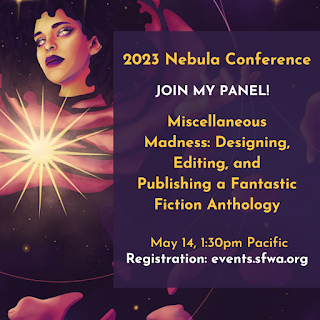Deborah J. Ross's Blog, page 19
May 24, 2023
[Brag] A Lovely Review of Jewels of Darkover
Proud editor grin!
From Charles Gipson on Amazon:
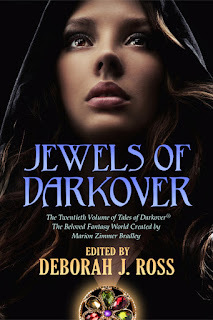 I have been a huge fan of Marion Zimmer Bradley's books since I was a teeenager... and have read almost every book she had published. The Darkover series have always been special to me... and I have read them all multiple times.
I have been a huge fan of Marion Zimmer Bradley's books since I was a teeenager... and have read almost every book she had published. The Darkover series have always been special to me... and I have read them all multiple times.There has been some controversy about "fan-fiction" and other authors that wanted to write stories in the Darkover world... and it was limited just a few authors initially. I have not read most of the anthologies (but I will be correcting that, as if they are anything like Jewels of Darkover... I will love them as much as Bradley's original works)
Jewels of Darkover has a lot of authors who contributed... and they must all be real Darkover fans, as the stories "fit" and expand the written lore of Darkover very well. Some of the stories explore themes that I do not remember from any of the original novels, or that were just hinted at, and make for wonderful reading. Very interesting stuff to say the least.
I will also be researching some of the authors who contributed... and seeing what else they have written, that I want to add to my book collection... this is always a great plus when I read anthologies that are put together nice
May 19, 2023
Short Book Reviews: A Smart Alien Murder Mystery
Drunk on All Your Strange New Words, by EddieRobson (Tordotcom)
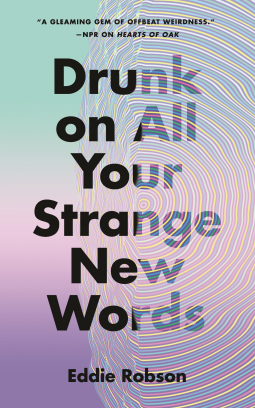
I loved this fresh and wonderful take on human-aliencultural clashes! This alien race, the Logi, are approximately humanoid inappearance and possess valuable technology. They’re fascinated by humanculture, especially the arts and printed books. The catch is that they communicatetelepathically through specially trained “Thought Language” translators. Onesuch is our heroine, Lydia, from a poor British background. She loves her work,the only thing she’s ever been really good at, not to mention her generoussalary and her sensitive, thoughtful boss, the Logi cultural attaché. All thismakes it worth feeling drunk from translating between Thought Language andEnglish. It all goes to hell when her boss is murdered and she’s the primesuspect. Both her freedom and her ability to solve the mystery depend on herremaining at the Embassy, and the Logi is charge has never liked her.
Drunk on All Your Strange New Words combines aliencontact science fiction, a sympathetic heroine, weird maybe-supernatural stuff,and a highly complex mystery filled with surprises and reversals. I foundLydia, with all her insecurities, bravura, and gullibility, deeply sympathetic.I fell for the same deceptions and cheered her on as the pieces of the puzzlefell into place. This is a smart science fictional mystery and awonderful take on how even truly weird aliens and humans can find understandingand common ground. Best of all, a deeply flawed character prevails at the end.
May 17, 2023
In Troubled Times: Bystander Intervention Training
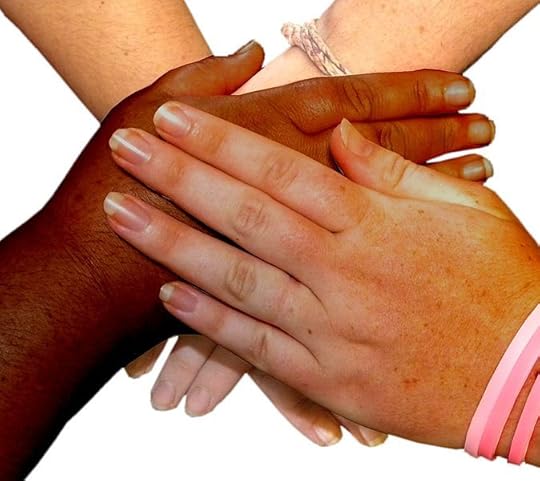 In January 2018, I attended a seminar entitled Stand! Speak! Act! A Community BystanderIntervention Training. The subheading suggested I would learn how tononviolently support someone who was being harassed. The event was presented bythe local chapter of CAIR (Council on American-Islamic Relations), the MuslimSolidarity Group, and the local rapid response team. The idea of becoming anonviolent ally in directly ameliorating the harm from harassment greatly appealedto me. I found the seminar enlightening, although not always in ways Iexpected.
In January 2018, I attended a seminar entitled Stand! Speak! Act! A Community BystanderIntervention Training. The subheading suggested I would learn how tononviolently support someone who was being harassed. The event was presented bythe local chapter of CAIR (Council on American-Islamic Relations), the MuslimSolidarity Group, and the local rapid response team. The idea of becoming anonviolent ally in directly ameliorating the harm from harassment greatly appealedto me. I found the seminar enlightening, although not always in ways Iexpected.To begin with, although two of the event’s three sponsorswere specifically Muslim solidarity groups, the techniques and strategies applywhenever a person is being targeted. Although hate crimes against Muslims haveincreased drastically (first after 9/11 and then ongoing since Trump's election), racism (anti-black, anti-Hispanic, anti-Asian) still accountsfor the majority of incidents, and anti-LGBTQ violence continues. Most of myfriends and relatives who have been harassed have been targeted because of race,sexual orientation, or gender identification, but by far the greatest numberhave been because of race. The principles of intervention remain the same, andif in the future some other group becomes a target for extremism and violence,allies will step forward.
The workshop drew its guidance and inspiration from theprinciples set out by Dr. Martin Luther King, Jr.:Nonviolence is a way of life for courageous peopleNonviolence seeks to win friendship and understandingNonviolence seeks to defeat injustice, not peopleNonviolence holds that suffering can educate and transformNonviolence chooses love instead of hateNonviolence believes that the universe is on the side ofjustice.
It’s tempting to lash out when you or someone you observe isa target of violence, whether physical or verbal. We’ve all seen enoughsuperhero movies to want to jump in, swirling our capes, and single-handedly takeon the offender. Outrage at what we perceive to be hateful and wrong fuels ouradrenaline. It’s hard to remain calm, to think clearly, and to act fromprinciple instead of reactive emotion. That’s why practice is so important.Harassment can escalate very quickly, and unless we have some experience in howwe are vulnerable to engagement, we can become swept up in the confrontation.
Bystander interventionisn’t about confronting the person spewing hatred, it’s about supporting theperson being targeted.
The best way to do this is through de-escalation, but in away that respects the needs and wishes of the targeted person. This means,firstly, not engaging with the attacker: not making eye contact, not respondingto their words, not contributing to the drama. It can also meanincluding other witnesses; one person can video the incident (using theirphone, with or without the ACLU app that sends the video directly to them*) orcall appropriate help (ambulance, paramedics).
Intervention at its best empowers the person being harassed.(That’s why the workshop avoided referring to them as “victims.”) Theprinciples encourage us as bystanders to approach that person calmly, introduceourselves, and explain that we saw what was happening and we want to offer support.This can mean proposing courses of action like “Would you like me to sit withyou?” or “What can I do to help you?” or “Shall we walk together in the otherdirection?” Or it might mean striking up a friendly conversation that excludesthe attacker, like “The weather’s been lovely, hasn’t it?”
The targeted person may not want to interact with us or maysay they’re fine, and as difficult as it is, we should remember the goal issolidarity, not rescue.
In practicing various scenarios, I was amazed at my ownemotional reaction even though I knew itwas an exercise. We split intogroups and acted out various situations (a woman in hijab being harassed on abus, a black person being insulted by someone driving by, a Spanish-speaking person being threatened in a language not understood). Tempers flared, and theperson playing the target often felt fearful. That happened to me when I wasportraying a Spanish-speaking person in a line at a store. Even though Iunderstood the English verbal attacks (based on perceived immigration status),I felt confused, frightened, and trapped. All I wanted was to escape. Theparticipants playing bystanders bunched together to make what felt like a wallof hostiles, even though they were supposed to be portraying allies. Then oneapproached me from the side, made sure I noticed her, and gently said, “Hola.” I was amazed at how my bodyrelaxed. I engaged with her, feeling I was safe, then asked her to help meleave the store. How much more terrifying must it be when it’s not a practicescenario!
The final caveat was that no one should feel obligated tointervene if they don’t feel it is safe to do so. Emotions can run high inharassment situations, and matters can escalate very quickly. Always trust yourinstincts. Even if you aren’t able to act at the moment, approaching thetargeted person with support and help after the danger has passed can do muchto minimize the harm.
As an addendum, not long after I took the seminar, I had an opportunity to practice the techniques in real life. At a women's march, I noticed that a young woman with a baby in a stroller was being harassed, quite loudly, by a much larger man. I placed myself between them, my back to him, and began talking to her in a friendly manner. I babbled about the weather and how cute her baby was, adding in the same light voice, "Would you like help getting out of here?" Her entire demeanor went from panic to relief. By the time I'd finished my question, the loud, angry man had melted back into the crowd and I didn't hear his voice again.
*The ACLU’sMobile Justice app is available in California and other states.
May 12, 2023
Short Book Reviews: A Cold-War Era First Contact Story
Three Miles Down, by Harry Turtledove (Tor)
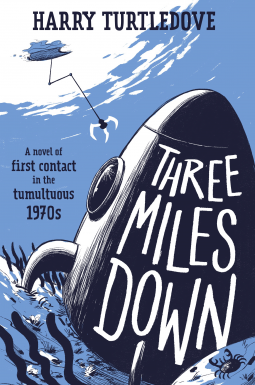
At the height of the Cold War and on the brink of the 1974Watergate scandal, the US discovers a sunken Soviet submarine…and somethingthey didn’t expect. Something they want to keep even more secret. Under theguise of harvestingundersea manganese nodules, they recruit a team of experts, including marinebiology grad student and aspiring science fiction author, Jerry Stieglitz.After being sworn to secrecy, Jerry learns the secret-inside-the-secret: theSoviet sub is sitting on top of an alien spaceship. They want Jerry not only tobolster their disguise when Soviet warships come to check them out but to usehis writerly imagination in interacting with the ship and its inhabitants, bothdead and in suspended animation. His insight (derived from the scene at thedoors of Moria, “speak friendand enter”) opens the door to the ship, for example. Of course, all doesnot go swimmingly. These are the days of anticommunist paranoia, anincreasingly embattled POTUS, and paranoid intelligence agencies. The stakesfor Jerry are not just being kicked off a lucrative and historic mission, butsurvival itself.
Turtledove is a terrific writer, combining sfnal FirstContact elements, humor, the unfolding domestic political drama, and humaninteractions, whether it’s Jerry’s friendships with the others on hisalien-spaceship team or his difficulties with his fiancée when he goes missingfor months. All this is highly enjoyable, fast reading, but what I found mostdelightful were the many homage-to-science-fiction touches, like a love letterto fans. There’s even a guest appearance by a well-known hard science fictionauthor (I won’t divulge who!) that had me laughing out loud at how brilliantthe portrayal was. (I’d met the guest-appearance author and yet, that’s exactlywhat they’d say!)
May 3, 2023
In Troubled Times: An Inner Guide to Political Action
 I started a blog series, “In Troubled Times” after the 2016 presidential election. Folks I trust said that things were going to get a lot worse before they got better. That’s true now, too. You can read the first installment, "Becoming Allies," here and "This, Too, Shall Pass," here.
I started a blog series, “In Troubled Times” after the 2016 presidential election. Folks I trust said that things were going to get a lot worse before they got better. That’s true now, too. You can read the first installment, "Becoming Allies," here and "This, Too, Shall Pass," here.
Like many others, I did not sleep well on election night or the following nights. Shock and dismay had hijacked my mind. I felt as if I had been catapulted into a very dark Twilight Zone episode. My thoughts went hither and yon, partly batted about by a political racquet, partly going from shiny/horror to next shiny/horror.
In my recovery from PTSD, I have learned to be protective of my sleep and my inner balance. I quickly detected warning signs and realized that I had to put my own mental and physical health first. Without that foundation, I wasn’t going to be able to make any sense or take effective action. So I set about using my “tool box” to reduce my anxiety. Besides sleep management and calming techniques, I reached out to my family and close friends. I tried as best I could to keep the focus on myself and my feelings, not politics. I took notice of which conversations made me feel better and which did not.
I felt better about myself when there was something I could do for the person close to me. Perhaps this was because I felt less powerless, but I believe it was because I felt more connected. Research suggests human beings are hard-wired to feel pleasure from helping others. Whether or not this is true, feeling valued and needed is a good thing.
So the first “movement” of my journey was to take care of myself and then to reach out to those around me.
Once I was feeling a bit more settled, I started to look around for other actions I might take. This required a great deal of filtering of news and social media. News sources inundated me with blow after terrible blow as events (and nominations or appointments) unfolded. I realized I could spend 100 hours a day on the various calls to action, and that not all of them were appropriate for me. Some would put me right back in the zone of risking my mental health.
How then are we to know how to proceed and what actions will not damage us?
We listen for that sense of rightness, no matter how frightening the prospect. I learned a great deal about this process from hanging out with Quakers. They talk about “discernment” and “leadings of the Spirit.” It’s one of the things that makes Quaker action different from other activism. One is led to take action by the promptings of the inner light, which means that arguments for or against make little difference. This made Quaker abolitionists (for example) tenacious in their cause.
What am I led to do? How will I know when I am inspired or simply driven?
I’m still listening, and while I do that, I pay attention to small things that I feel able to do. They may not qualify as “Spirit-led,” but they seem possible. Then I notice how I feel. As an example, I wrote a letter of support to the nearest mosque; I felt lighter and more hopeful after I had mailed it. On the other hand, I felt low and discouraged after speaking with certain people I had otherwise reason to trust. I’m not likely to try that again.
I do not know how or even if this process of trial and reflection, slowly feeling my way, will lead to action on a state or national level. I’m definitely not going to fly across the country to attend a march in Washington D.C. or New York City. Because I’ve felt energized by writing letters, I am more likely to do that again. I’m considering volunteering in person at Planned Parenthood (where I volunteered when I was in grad school, before Roe v. Wade) or the ACLU, but do not yet see a clear path.
Meanwhile, I continue to practice reaching out and find that the circle keeps getting bigger. By listening compassionately and seeking out safe places to share my own fears, I join a community of light. By sharing suggestions of actions, I become aware of those I might be willing to take or inspire others to take actions I am not comfortable with. Who knows? Maybe knowing someone who is brave enough (or skilled enough) to do something will show me the way. Or perhaps the way will open in community once I see I do not have to act alone.
April 28, 2023
Book Reviews: Penric and Desdemona Solve a Mystery
The Assassins of Thasalon, by Lois McMasterBujold (Subterranean)
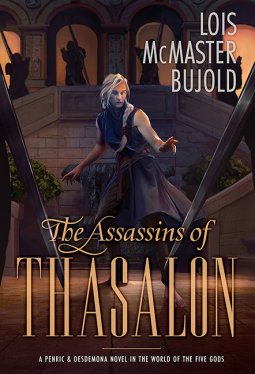
I first fell in love with…isn’t that the best way to begin abook review? In the case of Lois McMaster Bujold, the love affair goes back to Ethanof Athos (1986) and Falling Free (1988) Once Miles Vorkosigian burstupon the scene, I was thoroughly hooked. The Curst of Chalion, the firstnovel set in the World of Five Gods, saved me one convention (I think it was aWorldCon) when I ended up with a concussion from getting slammed in the head bya heavy glass door. I stayed an extra night, reading and re-reading, marvelingat the layers of richness. But I digress: Chalion was followed by the equallyawesome Paladin of Souls, then The Hallowed Hunt, and—about 100years earlier in chronology—the Penric and Desdemona novellas. I gobbled themall up, although Chalion retains a special, perhaps concussion-inspired,place in my heart.
Penric is this world’s version of a healer/cleric, bothaspects being supernaturally inspired by his god, the Bastard, and the many-generations-oldtemple demon, Desdemona, who shares his mind and, occasionally, his body.Through her, he can tap into magical powers as well as the experience andmemories of her former hosts. “Demon” has a different connotation here than theone typically used. While she is definitely a non-material being, she was bornof chaos and has been shaped into a person by her relationships with her humanhosts. She’s also sly and sarcastic, although she would never admit to beingloving.
Which brings us to the latest adventure, novel-lengthinstead of the previous novellas. The set-up is framed as a mystery: who istrying to assassinate Penric’s brother-in-law, the exiled, brilliant general?In the process of tracking down the attempted murder and preventing furtherattacks, Pen and Desdemona uncover a plot that goes right to the heart of whatmakes a person, and what part does the right use of power (or the atrocities ofits misuse) play? In too many fantasy stories, characters lack family ties, orthey have them, the families are off-stage and forgotten. Not so in thisseries. Penric lives in a matrix of people he loved and who love him, sometimesas vividly present when he is hundreds of miles away as when they’re in thesame scene.
Bujold is such a skillful writer, her work is a joy to read.I’m hooked on the first page, wanting to read faster to find out what happensnext and yet wanting to read slowly to savor all the nuances. She plays fairwith giving the reader all the necessary information, but she doesn’t berate,lecture, or inflict long explanations. Beneath the mystery-plot, there arelayers and layers of story-gold. Although I rejoiced at the novel length, the endstill came too soon.
Like the previous Penric and Desdemona stories, this one canbe read as a stand-alone, although the references to previous happenings andoff-stage characters would be enhanced by having read the adventures thatinvolve them. On the other hand, as an entry drug, it’s a grand excuse to samplethis world and its people, and then run off and delve into what has comebefore.
Highly recommended.
April 26, 2023
In Troubled Times: This, Too, Shall Pass

I came of age in the 1960s, demonstrating for civil rightsand marching against the Viet Nam War. I never burned my bra, but I volunteeredfor Planned Parenthood in the years before Roe v Wade. I am not bragging aboutmy activist bona fides. I was one of many, and rarely in the forefront.However, I remember all too well the feelings of both elation and futility. Theenergy and inspiration of being surrounded by thousands of like minds, fillingthe streets of San Francisco, chanting and singing. We thought that if we couldsing loudly enough and joyfully enough, we could change the minds and hearts ofthe nation’s leaders. And then came a day when many of us realized they werenot about to listen to us. The war raged on, now captured on television in ourliving rooms.
That feeling of powerlessness was one of the driving forcesbehind my debut science fiction novel, Jaydium, by the way. My heroineis initially trapped on a dusty, barely-habitable planet at the back end ofnowhere, and through a series of shifts through time and parallel dimensions,she ends up on an alien planet where she has the chance to change history bystopping a war. It’s about both re-engagement and the quest for peace (and Iwas tickled when Tom Easton of Analog praised the latter as unusual and laudable.)Writing it reflected my personal journey from withdrawal to participation.
I vividly remember how, in the late 1960s, my father, whowas born in 1907 and lived through two world wars, pogroms, the McCarthy witchhunts, and more, would talk me down from desperation. When I was in a panicabout the Cold War maneuver of the moment, he never dismissed my concerns; hewas just coming from a broader perspective. And he was right. We got throughthose years without blowing the planet up.
Now I find myself in the position of being an elder—a crone,if you will. My earliest political memories date from the mid-1950s, includingthe terror of HUAC, the pervasive suspicions, racism, misogyny, andantisemitism that no one questioned. When I was a bit older, the anti-communisthysteria had faded somewhat (depending on where you lived), but not the rest.And always, in the years before oral contraception, sex meant fear ofpregnancy. I knew girls in high school who got sent out of the country andreturned the following year or so without their babies. Later, in the late1960s/early 1970s but still before Roe v Wade, I volunteered at PlannedParenthood. And heard many stories. Looking back, I cannot believe how ignorantI was about so many other issues.
I do not mean to brag about my life experiences or to enterinto a contest of which times were worse. Each generation faces its own trials,and each generation is convinced that theirs are world-ending, worst-ever scenarios.This is one of many reasons why we need generational memory (not to mentionhistory books!)
Goethe wrote: “That which thy fathers have bequeathed tothee, earn it anew if thou wouldst possess it.” It’s horrible that we have tofight these battles over and over, playing eternal whack-a-mole with the agentsof hatred. That’s why we need all the allies and moral ammunition we can get.
I am mindful of the old joke, “In my day, we walked to school. Uphill.Both ways. In the snow.” I see no benefit in comparing one disaster to another.For the person affected by a catastrophic event, whether it’s an attack on themas a member of a vulnerable group or a purely personal tragedy, loss is loss,fear is fear, and grief is grief. Instead of belittling someone else’s pain, wehave the opportunity to use our own as a wellspring of compassion andunderstanding. The lesson from history is not that those times were more terriblethan those we face today. It’s that they passed. Sure, you might say, they weretaken over by new, awful things.
But sometimes, either by a cataclysmic change or the slowprogress of justice, things get better. Not all things, not for everybody, andnot all at once. Small victories add up to shifts in consciousness. One of myantidotes to despair is to complete the following sentence:
“I never thought I would live to see…”
People walkon the Moon A Blackperson become PresidentSame-sex marriage become legalA woman Vice PresidentNow fill in your own.
I believe that many of the crises looming over us are reactionsto those victories. Two steps forward and one step back. But the movement ofhistory is on our side. Rights once gained are not easily (permanently)revoked. Once marginalized groups are accepted as deserving of respect anddignity, it’s a lot harder to take that away.
Right now there are many attempts to take away human rightsand dignity. And lives, often for trivial excuses. It seems we are living in atime when vicious, outrageous, hate-fueled behavior is on the ascendency.
These times, too, shall pass.
In the meantime, we are called upon to protect thevulnerable and minimize the harm inflicted on them.
Coming soon: My experience with nonviolent bystander interventiontraining
April 21, 2023
Short Book Reviews: Not the Beauty and the Beast You've Known
TheLanguage of Roses,by Heather Rose Jones (Queen of Swords)
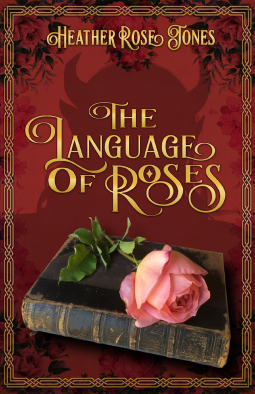
I loved Heather Rose Jones’s “Alpennia” books, with alltheir derring-do, politics, and intelligent romance, so I grabbed her new book,The Language of Roses, without nary a glance atthe description. It soon became clear to me that this was yet another (yawn)retelling of “Beauty and the Beast,” with hints that it will be a lesbianromance. But Jones is a thoughtful author who has never followed thepredictable path, so I hung in there during the set-up as the eldest daughterof a merchant who foolishly plucks a rose takes his place in the home ofa terrifying Beast and his icy sister, invisible servants and all. Thisdaughter, unlike her boy-crazy sisters, has never fallen in love (hint, hint) andregards marriage as a duty or a financial agreement, with mutual respect andfriendship the best she can hope for. Even if she is a stranger to romance, sheloves her family deeply and is fearless and passionate in their defense.
From the very beginning, like a twining rose vine, Jones examinesthe nature and varieties of love. Is it more than intense, all-consumingphysical attraction, and if so, how? The story kept remining me of thedifferent hormones involved in infatuation (dopamine and norepinephrine) versuslong-lasting, committed love (oxytocin). Jones doesn’t preach or descend intolengthy exposition on the neurochemical nature of love. Instead, she takes thereader on a journey of trust, comfort, cherishing, and self-sacrifice.
As a final note, I encourage readers to not judge this bookas a solely a lesbian romance. If you do, and if you think that’s not for you,you’ll miss out on something remarkable. The characters are universallyappealing, as are the emotions. There are enough plot twists and unexpecteddetails to keep the pages turning. It’s an absorbing, rewarding read.
April 19, 2023
In Troubled Times: Being Allies
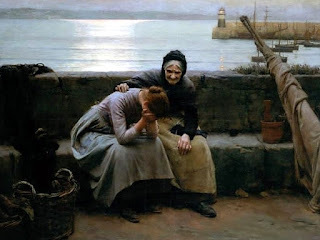
I started a blog series, “In Troubled Times” after the 2016presidential election. Folks I trust said that things were going to get a lotworse before they got better. That’s true now, too, so here’s the first in arenewed series.
Recently, I had a conversation with someone I love dearlywho, like so many of us, belongs to overlapping groups that have been targetedby the current crop of hate-mongers. So many of the people and causes I supportare at risk, it’s easy to feel battered by prejudice, overwhelmed, infuriated, andhopeless. But, in a moment of spontaneity, I found myself saying, “We can begood allies for one another.”
Let me break this down a bit. There is more than enoughhatred to go around. There will never be a lack of worthy causes and people inneed. No one of us can save everyone.
Thankfully, we are not all crazy (or desperate, or paralyzedby events) on the same day. Progress happens when we are actively pursuing it,but also when we allow ourselves to take a break, tend to our inner lives, andallow others to carry the load. The world does not rise or fall solely based onany one of us. This is why solidarity is essential. Insisting on being on thefront lines all the time is an engraved invitation to exhaustion. If we look,we will always find those who, for this moment anyway, have energy anddetermination.
I think the secret to being a good ally is to realize that wecan be that person for someone else.
This requires paying attention.
It is not helpful to do for someone what they can and shoulddo for themselves. How then are we to discern when “helping” is arrogantinterference? When is it a genuine offer and when does it result in telling theother person that they are inadequate and helpless to achieve their goal?
We ask. We listen. We give ourselves permission to appearclumsy and we forgive ourselves when we make mistakes.
Sometimes, the best thing we can ask is “How can I help?”and sometimes it is the worst, laying yet another burden on a person bowed downunder them (“Oh god, I’ve got to think of something for her to do!”) Sometimes,saying, “Would you like me to help with that?” is the best, and sometimes it isthe worst. Sometimes, “You are not alone” is a sanity-saver. Sometimes, it is areminder of looming disaster. Sometimes, “I’m here and I care” is all the otherperson needs to hear, and sometimes it is worse than silence.
We listen. We ask. We pay attention.
The one thing we do not do is walk away. When I think ofbeing an ally, I envision someone with whom I can be depressed, angry,volatile, and just plain wrong—and know that I will be held up by their unrelenting care for me. I can vent my frustration and they won’t abandon me.They will hear the pain and despair behind my words.
I want to be that ally for others. I want to be that safeperson. I’m far from perfect at it, though. My feelings get hurt. I sop up theother person’s despair when I know better. I do my best to not walk away.
Listen. Forgive yourself. Take a break. Do what you can,when you can. Then pick yourself up and get back into the fight.
Up soon… “This too shall pass…”
April 17, 2023
Upcoming (Virtual) Panel Appearance!
I'll be appearing on this panel, talking about my experiences editing anthologies over the years. My debut was the first Lace and Blade (2007) when I got to work with the great Tanith Lee.
